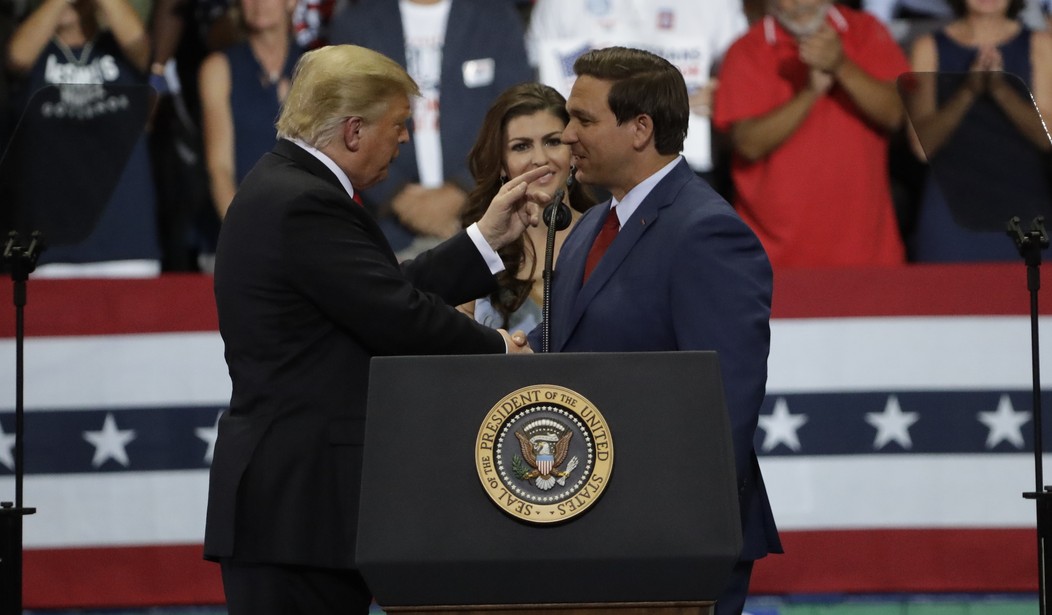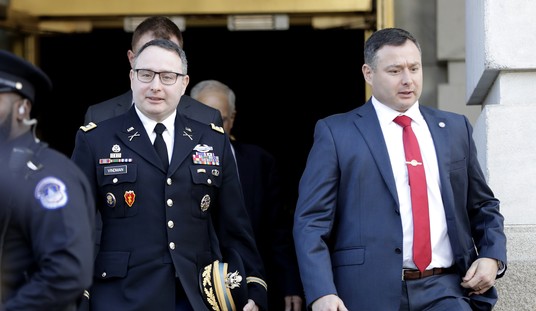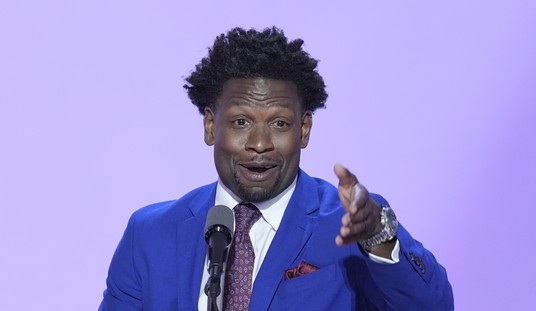I know it's easy to Monday-morning quarterback, especially when it comes to campaigns. However, conducting a postmortem on a campaign or an important event can be productive. It's true that you can often learn more from losing a political race than from winning. In life, success has a thousand fathers, but defeat is an orphan.
The other day, I was driving across the fruited plain and thinking about the DeSantis primary campaign and how it didn't ultimately go anywhere. While we can debate that sentiment, in politics, the way you keep score is by votes. By that metric, the DeSantis campaign didn't go anywhere. Even after visiting all 99 counties, Trump won Iowa and dominated the primary from beginning to end. Trump got more votes than everyone else in the race, so his campaign went somewhere while the others did not.
RELATED:
BREAKING: Former President Donald Trump Wins Iowa Caucus
I tend to be big on imagery. I like to imagine the power of pageantry, ceremony, and formality and how these can be used effectively in politics to establish a certain type of narrative. Along these lines, I want to share an observation I had early on in the Republican primary race. Nearly every time Donald Trump was interviewed by a reporter or journalist—whether it was Bret Baier, Laura Ingraham, Tucker Carlson, Megyn Kelly, and the list goes on—he conducted those interviews either at his palatial golf course in New Jersey or at Mar-a-Lago. The staging was always unmistakably presidential: a large, stately room with elegant furniture, two chairs situated closely together but not too close, and a sense of pomposity and formality permeating the scene. This setup extended an almost obligatory level of respect to Trump.
In contrast, Ron DeSantis, the sitting governor of Florida—the third largest state in the country, with one of the most dynamic economies and diverse populations—appeared in interviews almost exclusively as a talking head on cable news, as though participating in a Zoom call. Occasionally, he appeared in a studio for a one-on-one podcast, which was better but still not good enough.
I understand that demanding a reporter interview you on your terms and terrain can be audacious. However, I strongly believe it pays political dividends that are difficult to calculate. When Trump was running for the nomination, he was running as a de facto President of the United States. The people interviewing him treated him this way, and the people watching perceived him that way. To his credit, and to the credit of his politically astute campaign managers, he made full use of this and enjoyed tremendous benefits. The results are undeniable.
Allow me to digress for a moment. In 1994, I had a formative conversation with a politically astute mentor about perception in politics. As a young, opinionated, bleeding-heart conservative, full of vim and vigor, I frequently wrote letters to the editor on environmental issues. I had developed a loyal following and a reputation for edgy, often acerbic, and sometimes sarcastic rebuttals to many bad ideas advanced by the environmental left in Santa Barbara. And believe me, there is no shortage of bad ideas from the greenies who control Santa Barbara County even today.
However, because I had political aspirations and my mentor knew this, he gave me valuable advice that I never forgot. He said if I wanted to run for office someday, I should stop writing so many letters to the editor. He explained that voters don't vote for people they perceive as their equals. Their neighbors write letters to the editor; they won’t vote for their opinionated neighbor. Voters want someone they perceive as being above their pay grade in terms of political knowledge and understanding of the issues that impact them. His advice was to write an occasional op-ed instead. I never wrote another letter to the editor.
I mention this because I think the same principle applies to politicians appearing frequently on cable news as talking heads versus allowing reporters an audience where they can use the trappings of their office to convey an unmistakable message: "I've attained a position of leadership, I maintain this position of leadership, I am worthy of this position of leadership, and of future leadership. Therefore, you should listen to what I have to say."
Now, here’s the Monday-morning quarterbacking: Had I been at the Team DeSantis campaign headquarters, I would have suggested this approach to the governor. It's my advice to him for the future should he choose to run again. You don't need to be the governor or the president, you don't need to live in a governor’s mansion or the White House, but you should utilize majesty, pageantry, and formality while communicating your ideas. This sends an unmistakable and unequivocal signal to the people watching and listening: You are important, you have something important to say, and it is important they listen.













